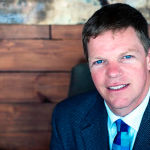Author: Credible Leaders
I have worked with corporate teams that measure what seems like everything. My concern with these teams isn’t what they are measuring, but rather what they are not measuring — leadership effectiveness. Teams measure on-time delivery, sales call per day, employee engagement, and so many more useful metrics. I’ve even seen a team measure coffee […]
I have worked with corporate teams that measure what seems like everything. My concern with these teams isn’t what they are measuring, but rather what they are not measuring — leadership effectiveness. Teams measure on-time delivery, sales call per day, employee engagement, and so many more useful metrics.
I’ve even seen a team measure coffee consumption in order to identify overworked team members so here are my Leadership Effectiveness: 6 Reasons To Measure It As team leaders explain their metrics and measurement practices to me, I begin to notice missing measurements associated with the very reason they brought me in to consult. “How are you measuring leadership effectiveness in your team?” To this question, I get a variety of responses. “We don’t know how to measure leadership effectiveness.
That’s why we called you.” At times, I get an attempted explanation that all the other metrics are actually an indicator of leadership effectiveness. “Why do we need to additionally measure leadership effectiveness given we have all these other metrics?” It is this last response that I want to address in this article. Let me explain several reasons you need to measure leadership effectiveness. To improve yourself
According to John C. Maxwell, in his book The 21 Irrefutable Laws of Leadership, “Leadership ability is the lid that determines a person’s level of effectiveness. Personal success, without leadership ability, brings only limited effectiveness. Without leadership ability, a person’s impact is only a fraction of what it could be with good leadership.” You wouldn’t be reading this article if your own personal growth and success weren’t important to you. If you want to improve your leadership, you must first measure it.
A marathon runner wants to improve his time, therefore he measures every distance and time he runs those distances. He measures distance and time so he can prove his improvement. “What gets measured, gets improved.” I’ve heard this quote or a similar version of it for many years and I’ve seen it attributed to both Peter Drucker and Robin Sharma. I don’t know who first used the quote or the exact wording, but I completely agree with the principle of the quote. If you want to improve your leadership ability, start by measuring it.
To improve the team
Just like self-improvements, team improvements only happen when leadership abilities are improved. Maxwell describes The Law of the Lid, in his book The 21 Irrefutable Laws of Leadership. “If a person’s leadership is strong, the organization’s lid is high. But if it’s not, the organization is limited.” No leader wants to be the limiting factor in their team. However, the success of the team falls completely on the leader’s shoulders and his/her effectiveness in leading the team. Leif Babin makes it clear in the book, Extreme Ownership.
“There are no bad teams, only bad leaders.” Leadership effectiveness must be measured because the success or failure of the team ultimately depends upon it. This is true of every level of leadership. Some teams are large enough to have multiple layers of leadership. In this case, every level of leadership must be measured and improved. To grow your business
“How do you grow a company? By growing the people in it. And if you really want to expand the organization and its potential, focus on growing leaders,” says Maxwell in The 5 Levels of Leadership. Business growth is an absolute necessity. Without growth, a business will die. Maxwell also describes the possibility of explosive business growth in The 21 Irrefutable Laws of Leadership. “You can grow by leading followers, but if you want to maximize your leadership and help your organization reach its potential, you need to develop leaders.
There is no other way to experience explosive growth.” When asked if your business is growing leaders, how would your respond? How would you prove to yourself and the person asking that leadership effectiveness is increasing? I hope your response isn’t referencing business metrics like annual revenue. By the time you get those metrics, it’s too late, you’ve already lost. You need to be measuring leadership effectiveness specifically. To value people
Increased leadership ability always benefits the people on the team the most. This is important to know because it’s the people on the team that takes care of the customer and the business. Well-led team members are happy and productive team members.
Happy and productive team members create happy customers and better business. Maxwell describes a serious consequence to having leaders in what he calls the Positional level of leadership — the lowest level defined in his book The 5 Levels of Leadership. “People who rely on position for their leadership almost always place a very high value on holding on to their position — often above everything else they do. Their position is more important to them than the work they do, the value they add to their subordinates or their contribution to the organization.
This kind of attitude does nothing to promote good relationships with people. In fact, positional leaders often see subordinates as an annoyance, as interchangeable cogs in the organizational machine, or even as troublesome obstacles to their goal of getting a promotion to their next position. As a result, departments, teams, or organizations that have positional leaders suffer terrible morale.”
For so many reasons, you don’t want to be the person leading a team with terrible morale. Your team needs and deserves the very best version of you. Additionally, the best version of you can’t be the same as yesterday, last week, or last year. Your team needs you to constantly improve your leadership ability in order that the team can also constantly improve. You need to measure your leadership effectiveness to ensure you value your team members. To reduce attrition
Occasionally, a leader will point to their high attrition rate as an indicator of poor leadership. High attrition certainly indicates poor leadership, but it’s really a bad metric to use for measuring leadership effectiveness. It’s too late to measure leadership after a team member, or several have left.
“People don’t leave bad companies, they leave bad bosses.” I’m not sure to whom to attribute the quote, but I completely agree with it. A higher than normal attrition rate is in fact an indicator of bad leadership. As mentioned before, measure attrition is too late. Measuring leadership effectiveness must happen long before team members become frustrated to the point of leaving. Consistent measurement of leadership effectiveness indicates a clear understanding of the importance of leadership improvements.
Team members unsatisfied with current leadership effectiveness remain hopeful when they see leadership being measured and efforts being made for improvement. To attract great team members
Every leader wants great team members on the team. If you want better team members on your team, you need to start with improving your leadership. Great team members aren’t attracted to bad leaders. John Maxwell describes the law of respect in his book, The 5 Levels of Leadership, “the law of respect says, people naturally follow leaders stronger than themselves.
That means if you remain a 4, then you will never attract and keep any leaders better than a 3.” Measuring leadership effectiveness will identify the type of team members that will be attracted. If you measure your leadership effectiveness, you can improve it and increase in level. This improvement will both increase leadership ability within the current team and attract new team members with higher levels of leadership ability.
Contact Us at WeSpeak Global and follow us on Twitter
The articles, video and images embedded on these pages are from various speakers and talent.
These remain the property of its owner and are not affiliated with or endorsed by WeSpeak Global.

I posted this about Hole in the Wall and Coffee Bay yesterday for Incredible Adventure Destinations . It’s a classic view of EsiKhaleni! This is a series of 9 episodes taking you on another Wild Journey into the heart of South African Adventure traveling. Follow explorer and adventurer Peter Van Kets and photographers, Jacques Marais, […]

WeSpeak Global: Revolutionizing the World of Speaker Bureaus In today’s fast-paced and interconnected world, the power of effective communication cannot be overstated. Whether it’s inspiring a team, educating an audience, or driving change, skilled speakers have the ability to captivate and motivate others. Recognizing this potential, WeSpeak Global has emerged as a prominent international speaker […]

Worrying is psychologically debilitating and The Opposite of Worrying Planning Recently, I helped a client eliminate the worrying component in his narrative which was causing serious procrastination. This is not unusual, and here are some thoughts for those who find themselves trapped in this wheel of hell. I understand worry intimately. I know those who […]

Hi! My name is Niki Seberini (Mind Freedom Fighter) and this is my first Getting Unstuck blog, Getting Unstuck – A Journey Within. I started “vlogging” a few years ago (video blogs) which I really enjoy. I also love the process of journaling where I get to sit with my thoughts, feelings and ideas and […]

As we have seen ourselves Fast Forward over the last 30 years, massive disruption has hit the $4 trillion transportation industry. Detroit has shrunk into a tiny version of its former self. Air travel has continued to go through the constant boom and bust based on the economy and jet fuel prices, and has yet […]

For many of us, robots used to conjure up images of humanoids in sci-fi movies, and we thought them to be Robots are creepy? Not at all. We need them. But now that they have become so ubiquitous, this is no longer the case. More and more companies are embracing the robotics revolution, introducing […]

Think Yourself Thin reaches no.1 Best Seller rank on Amazon VANCOUVER, July 19, 2016 /CNW Telbec/ – Nathalie Plamondon-Thomas, inspirational speaker and Life Coach, tops Amazon.com bestseller lists with her new book Think Yourself Thin. In Think Yourself Thin, Nathalie combines her experience in life coaching, fitness, nutrition and Neuro-Linguistic Programming into a system that shows you how to reprogram […]

In other words, workers burned out by the “hustle culture” so recently prevalent have decided to either quit their jobs — or perhaps even more damaging to businesses — disengage themselves from where they are working. In a brilliant article in a recent edition of the Wall St. Journal, Lindsay Ellis and Angela Yang reveal that what we’ve […]
No results available
Our Mission
© All rights reserved 2025. Created using VOXEL THEME